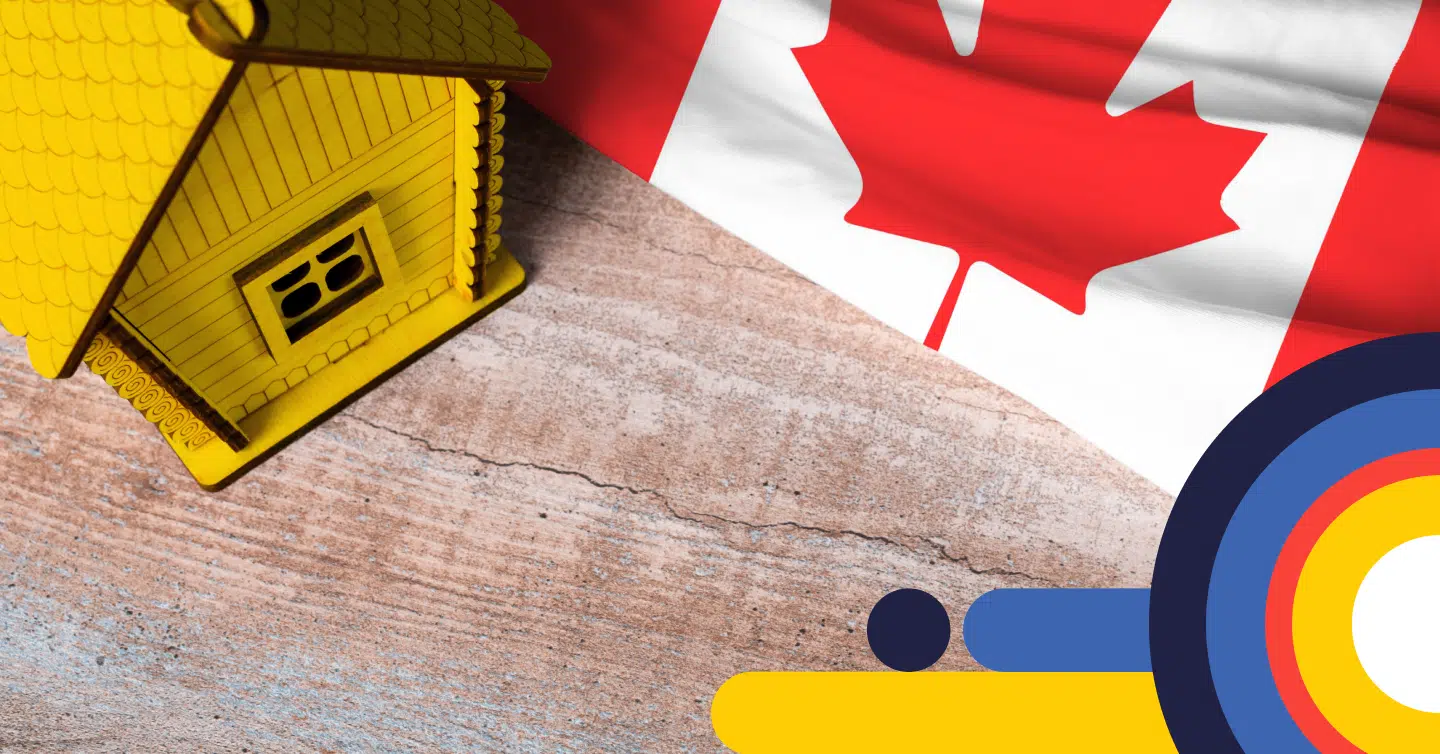Featured articles #Mortgage Basics #Real Estate
Featured articles #Mortgage Basics #Real Estate
Which Canadian Cities are Most Impacted by the BoC Rate Hikes?

Table of contents
Key Highlights
- The Bank of Canada’s October interest rate hike intends to curb out-of-control inflation but it doesn’t seem to be affecting inflation rates yet.
- Canadians living in large metropolitan cities will see higher rates of inflation overall.
- The highest inflation rate is 8.7% in a major Canadian city whereas the lowest is 4.8%.
Why some Canadian cities are more impacted than others by BoC rate hikes
Factoring in the urban population, housing availability, and average household income, it’s clear that there are many reasons why some Canadian cities are more impacted by the Bank of Canada’s recent interest rate hike. In October, the BoC raised the interest rate by 50 basis points to 3.75% in an effort to combat the rising inflation nationwide.
The BoC hopes that higher inflation rates will lower the demand and increase the cost of borrowing on investments, therefore, lowering inflation. But in many Canadian cities, people are still feeling the pinch of inflation in their daily lives. In larger cities, for example, the cost of living has skyrocketed to historic levels so it’s likely that cities with a larger urban population will feel more impacted by the BoC rate hikes.
Find a better rate, and we’ll match it, beat it, or give you $500*.
*Conditions Apply
With nesto, it’s stress-free
Cities with Highest Inflation in Canada
According to Statistics Canada, the city with the highest inflation rate in Canada is Charlottetown, Prince Edward Island at 8.7% as of September 2022. The capital of PEI has the highest inflation rate in Canada but overall, its rate has decreased month to month.
Winnipeg has the next highest inflation rate, at 8%. Winnipeg’s inflation rate has decreased over the past year as well, but it remains the highest in Canada in terms of large urban metropolitan areas. Winnipeg, however, remains one of the more affordable cities in the country.
Up next, Halifax has a 7.8% inflation rate. Another Maritime capital, Halifax residents are feeling the pinch of inflation in all aspects of their spending. The average cost of housing in Halifax remains relatively high for a city of its size.
| City | Inflation Rate (From Lowest to Highest) |
| Iqaluit | 4.8 |
| Edmonton | 5.6 |
| Thunder Bay, Ont. | 5.7 |
| St. John’s, N.L. | 6 |
| Saskatoon | 6.2 |
| Calgary | 6.7 |
| Yellowknife | 6.7 |
| Toronto | 6.8 |
| Montreal | 7.2 |
| Quebec City | 7.2 |
| Ottawa | 7.3 |
| Regina | 7.3 |
| Saint John, N.B | 7.4 |
| Vancouver | 7.4 |
| Victoria | 7.4 |
| Whitehorse | 7.6 |
| Halifax | 7.8 |
| Winnipeg | 8 |
| Charlottetown | 8.7 |
How Does Higher Inflation, Mixed with BoC Rate Hikes Impact Consumers?
Consumers are still feeling the effects of high inflation despite the BoC rate hike. At 3.75%, the BoC rate aims to increase the cost of taking out loans for investments such as housing and to help people spend less money. The theory holds that the pace of inflation can be decreased by decreasing demand for goods and services, but this ignores recent disruptions in international supply chains.
Go to any grocery store and you’ll notice eye-watering price increases for most products despite what the BoC rate hike intends to do. In housing, the BoC hikes will increase borrowing costs, meaning that more people could put their homes up for sale if they can no longer afford the payments. In theory, housing availability could potentially increase overall in 2023, but that could cause a recession. Consumers are feeling the impact of high inflation in all areas of life, but hopefully, the rate hike will have its desired effect.
But the truth is, although the BoC rate hikes are intended to fight inflation, so far, the hikes are not having the desired effect. It’s only been a month, however, so let’s wait and see what happens going into 2023.
Cities with Highest Housing Costs in Canada
Vancouver remains the most expensive city for housing in Canada. With the median home price at $1.4 million, reaching nearly $2.5 million in some neighbourhoods, Vancouver is a very expensive city to find housing. The quality of life is outstanding, however.
No surprise to anyone, but Toronto is the second most expensive city in Canada for housing. With the average reaching $1.2 million, Toronto is also one of the most expensive cities to rent an apartment or condo in the country.
| City | Average Home Price (From Highest to Lowest) |
| Vancouver | $1.4M |
| Toronto | $1.2M |
| Victoria | $1.2M |
| Kelowna | $1.0M |
| Ottawa | $750K |
| Montreal | $590K |
How Do Higher Housing Costs Mixed with BoC Rate Hikes Impact Consumers?
Housing is where the BoC rate hike could come to really benefit some Canadian consumers. If it has its desired effect, the BoC hike could potentially increase the availability of homes on sale and lower the overall cost of buying a house.
Over the coming year, Canadian home prices appear to be on a continuous decline. A real estate market report by Desjardins predicts a 20% to 25% decline in property prices due to rising interest rates. But one thing to consider is that rising rates and lower home prices might signal an impending economic slump.
Should a recession happen, it will be a lot more difficult to justify purchasing a home in Canada. In fact, many potential homebuyers are willing to wait and see what happens. It all depends on whether the BoC’s interest rate bump will have its intended effect on inflation and on the housing market.
Thinking about buying a home? Read our guide to home buying >
With that – What are the cities most impacted by BoC rate hikes then?
Considering that we won’t see significant effects of the BoC rate increase in the near future, most major Canadian cities won’t see any obvious changes in home prices, availability, real estate investment, and most importantly, inflation.
Historically, BoC interest rate hikes haven’t significantly changed the economy according to the Canadian Centre for Policy Alternatives. In fact, the experts observe that “using rapid interest rate hikes to deflate the economy is a blunt, non-targeted approach that creates tremendous collateral damage.”
Expensive cities like Vancouver and Toronto might just remain the course and continue to have a high cost of living. People living in those cities might feel the pinch, but with more accessible services, supply chain issues might not be as evident. In smaller communities like Halifax and Yellowknife, supply chain issues might be a lot more evident in addition to the increased prices.
Navigating Bank of Canada Rate Hikes in 2022-2023
Rate increases should continue until inflation has subsided during the course of the year. As the effects of rate rises spread across the country over the next few months, we probably won’t notice a decline in inflation during that time. In fact, inflation may not respond to the BoC’s increases until somewhere around March 2023 if all goes well.
Frequently Asked Questions
Which cities in Canada have the highest inflation?
Charlottetown, PEI; Winnipeg, Manitoba; and Halifax, Nova Scotia are the cities with the highest inflation rates in Canada.
Which cities in Canada are impacted most by Bank of Canada rate hikes?
Larger metropolitan areas like Vancouver and Toronto could simply remain as they are while more isolated communities like Charlottetown and Whitehorse could feel the effects of inflation even more significantly than they are.
Final Thoughts
The Bank of Canada anticipates that higher inflation rates will reduce demand, raise the cost of borrowing for investments, and thus reduce inflation. However, individuals are still experiencing the effects of inflation in many Canadian cities. Whether or not the BoC’s rate increase will make matters better or worse is still up for question, but so far, Canadians won’t see any significant effects until early 2023.
Ready to get started?
In just a few clicks, you can see our current rates. Then apply for your mortgage online in minutes!















